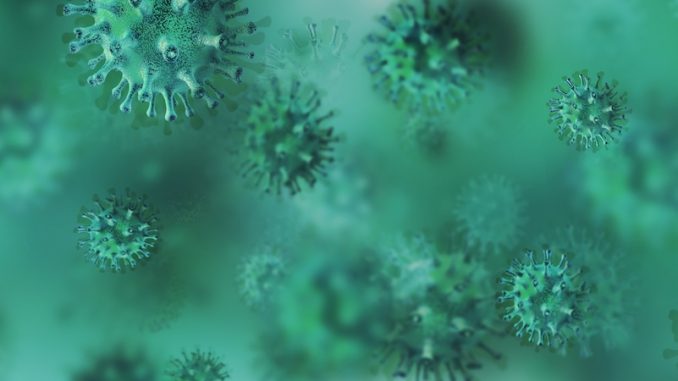
As folks gather indoors this winter — whether it be for holidays, football playoffs or perhaps to shelter from the cold — the unwelcome party guests influenza and norovirus have found their way to the table once again, heralding the reminder to practice good hygiene and get vaccinated to mitigate the risks of illness.
Noroviruses are a group of viruses that cause acute gastrointestinal illness, which can affect anyone and take three to five days to run their course in infected individuals. Symptoms include nausea, stomach cramps, diarrhea and vomiting that develop 12 to 48 hours after exposure, according to Stony Brook Eastern Long Island Hospital.
Healthy individuals can contract norovirus from others who’ve been infected, contaminated surfaces, food and water, according to the Centers for Disease Control and Prevention. Peconic Bay Medical Center chief of infectious disease Dr. Michael Huangsaid the virus can survive on surfaces for days to weeks.
PBMC doesn’t “normally see many cases” of norovirus, Dr. Huang said, as the virus typically doesn’t lead to hospitalization.
“The two cases that I recall from recent memory [at PBMC], those people that were really sick that they were in the [Intensive Care Unit] requiring IV fluids,” Dr. Huang noted. “But those people are more elderly and have some other comorbidities.”
The patients who do seek medical help for norovirus usually tend to have other illnesses accompanying the virus, which makes them more susceptible to a gastrointestinal illness, he said.
Throughout the country, the CDC reported 91 norovirus outbreaks in just the first week of December. The CDC’s NoroSTAT system compiles data reported by state health departments in Alabama, Colorado, Massachusetts, Michigan, Minnesota, Nebraska, New Mexico, North Carolina, Ohio, Oregon, South Carolina, Tennessee, Virginia and Wisconsin.
Alcohol-based hand sanitizers have not proven effective in killing norovirus, Dr. Huang said. The public is encouraged to wash their hands for 20 seconds after using the toilet or changing diapers, before eating, preparing or handling food, and before taking or giving someone else medication. Bleach-based cleaners can be used to wipe down surfaces and kill the virus.
Those who have contracted the illness are encouraged to drink plenty of fluids to help prevent dehydration. Antibiotic drugs will not help treat the infection as they fight bacteria, not viruses.
The New York State Department of Health reported 40 outbreaks throughout the state between Dec. 22-28. Fifteen of the outbreaks were in hospitals and 25 were in nursing homes, according to the report. As of Dec. 18, the department declared that influenza is prevalent in the state.
Dr. Huang added that PBMC has seen an insurgence of influenza cases recently, as flu activity peaks.
“For some reason that is unclear to me right now, the cases of influenza that we’ve got — we have a bunch with bacterial infection as well,” he said. “Bacteremia specifically, where the bacteria gets in the blood stream.”
So far this flu season, Dr. Huang said PBMC has seen five patients hospitalized, one of whom died as a result of bacterial infection. He described most of the hospitalized patients as “slightly immunocompromised” with high blood pressure, diabetes or chronic obstructive pulmonary disease.
In Suffolk County, the influenza infection rate between Dec. 21 and 28 stood at 2,828 cases per 100,000 people, according to the state health department. The influenza hospitalization rate throughout the county was 153 hospitalizations per 100,000 people in the same week. The most common type of influenza currently reported is type A.
“Vaccines are one of our primary lines of defense for everybody,” Dr. Huang said. “Getting their annual flu vaccine will be helpful in reducing the severity of influenza, even if it doesn’t protect 100%.”
People are encouraged to also practice general hygiene — wash their hands, cover coughs, wear masks and avoid crowded places when sick.
“The other part is making sure you’re taking care of yourself — making sure you have plenty of sleep, getting plenty of rest, so that you recover faster,” Dr. Huang said. “Eating and drinking a good amount of fluids would also be helpful in that recovery process.”

